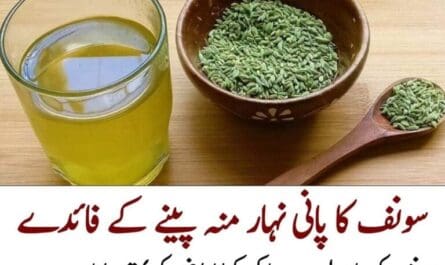Green tea has long been celebrated for its numerous health benefits, including its potential to aid in weight loss. With its rich antioxidants and metabolism-boosting properties, green tea is a natural choice for those looking to shed some extra pounds. However, one common question that arises is whether to opt for loose green tea or tea bags for the most effective weight loss results. In this article, we’ll delve into the benefits of green tea, explore the differences between loose green tea and tea bags, and provide tips on how to maximize your weight loss efforts using green tea.
The Benefits of Green Tea for Weight Loss
**1. Rich in Antioxidants
Green tea is packed with antioxidants, particularly catechins, which help combat oxidative stress and support overall health. The most potent catechin, epigallocatechin gallate (EGCG), is known for its metabolism-boosting properties and its ability to aid in fat oxidation.
**2. Boosts Metabolism
Studies have shown that green tea can increase metabolic rate, helping the body burn more calories throughout the day. This thermogenic effect makes green tea a valuable addition to any weight loss regimen.
**3. Enhances Fat Burning
The combination of caffeine and EGCG in green tea can enhance the body’s ability to burn fat, especially during exercise. This can lead to greater weight loss over time when combined with a healthy diet and regular physical activity.
**4. Reduces Appetite
Green tea may help reduce appetite and improve satiety, making it easier to manage food intake and stick to a calorie-controlled diet.
**5. Improves Insulin Sensitivity
Green tea can improve insulin sensitivity, which helps regulate blood sugar levels and prevent insulin spikes that can lead to weight gain.
Loose Green Tea vs. Tea Bags: Which is Better?
When it comes to choosing between loose green tea and tea bags, both options have their pros and cons. Here’s a breakdown of the differences to help you decide which is best for your weight loss journey.
**1. Quality and Flavor
Loose Green Tea:
- Higher Quality: Loose green tea is often of higher quality than tea bags, as it typically contains whole or large pieces of tea leaves. This allows for better flavor extraction and a more robust taste.
- More Fresh: Loose tea leaves tend to be fresher and less processed, retaining more of their natural oils and flavors.
- Customizable: With loose green tea, you have the flexibility to adjust the strength and flavor of your tea to suit your preferences.
Tea Bags:
- Convenience: Tea bags are convenient and easy to use, making them a popular choice for busy individuals. They are pre-measured and require no additional equipment.
- Consistent Flavor: Tea bags provide a consistent flavor, which can be helpful if you prefer a predictable taste.
**2. Nutritional Value
Loose Green Tea:
- Higher Nutrient Content: Loose green tea generally contains higher levels of catechins and antioxidants compared to tea bags, which may have undergone more processing.
- More Potent: The larger leaves in loose tea allow for better nutrient extraction, making it a more potent option for weight loss.
Tea Bags:
- Potentially Lower Nutrient Content: Tea bags may contain smaller tea leaves or tea dust, which can result in lower levels of antioxidants and catechins.
**3. Environmental Impact
Loose Green Tea:
- Eco-Friendly: Loose green tea typically has less packaging waste and is often sold in bulk, making it a more environmentally friendly choice.
- Reusable Options: You can use reusable tea infusers or strainers with loose tea, further reducing waste.
Tea Bags:
- Convenient but Wasteful: Tea bags often come with additional packaging and are single-use, contributing to more waste.
**4. Cost and Accessibility
Loose Green Tea:
- Cost-Effective in the Long Run: While loose green tea may have a higher upfront cost, it is often more cost-effective over time as you can control the amount used per serving.
- May Require Equipment: You’ll need a tea infuser or strainer, which can be an additional cost and inconvenience.
Tea Bags:
- Affordable and Accessible: Tea bags are widely available and usually more affordable upfront. They are a convenient option for those new to green tea.
How to Use Green Tea for Effective Weight Loss
**1. Choose the Right Type of Green Tea
Opt for high-quality loose green tea or tea bags that contain whole leaves or larger pieces. Look for options that are free from additives and artificial flavors.
**2. Brewing Tips for Maximum Benefits
- Use Fresh, Pure Water: Start with fresh, filtered water to ensure the best flavor and quality.
- Proper Temperature: Avoid boiling water, as it can burn the delicate green tea leaves. Aim for a water temperature of around 160-180°F (70-80°C).
- Steep Time: Steep green tea for 2-3 minutes to extract the beneficial compounds without making it too bitter.
**3. Incorporate Green Tea into Your Routine
- Drink Regularly: Aim to drink 2-3 cups of green tea per day to maximize its weight loss benefits.
- Before Meals: Drinking green tea before meals can help reduce appetite and prevent overeating.
- During Exercise: Consuming green tea before your workout can enhance fat burning and improve endurance.
**4. Combine with a Healthy Diet and Exercise
While green tea can aid in weight loss, it works best when combined with a balanced diet and regular physical activity. Focus on whole, nutrient-dense foods and maintain an active lifestyle.
**5. Stay Hydrated
Green tea has diuretic properties, so it’s essential to stay hydrated by drinking plenty of water throughout the day.
Additional Tips for Weight Loss with Green Tea
**1. Limit Sweeteners
Avoid adding sugar or sweeteners to your green tea, as they can add unnecessary calories and counteract the weight loss benefits. If you need to sweeten your tea, opt for a small amount of honey or a natural sweetener like stevia.
**2. Try Green Tea Extracts
Green tea extracts or supplements can provide a concentrated dose of the beneficial compounds found in green tea. However, consult with a healthcare provider before adding supplements to your regimen.
**3. Experiment with Flavors
If you find the taste of green tea too bitter, try adding a slice of lemon, a few mint leaves, or a touch of honey. You can also explore flavored green teas that combine green tea with other herbs or fruits.






